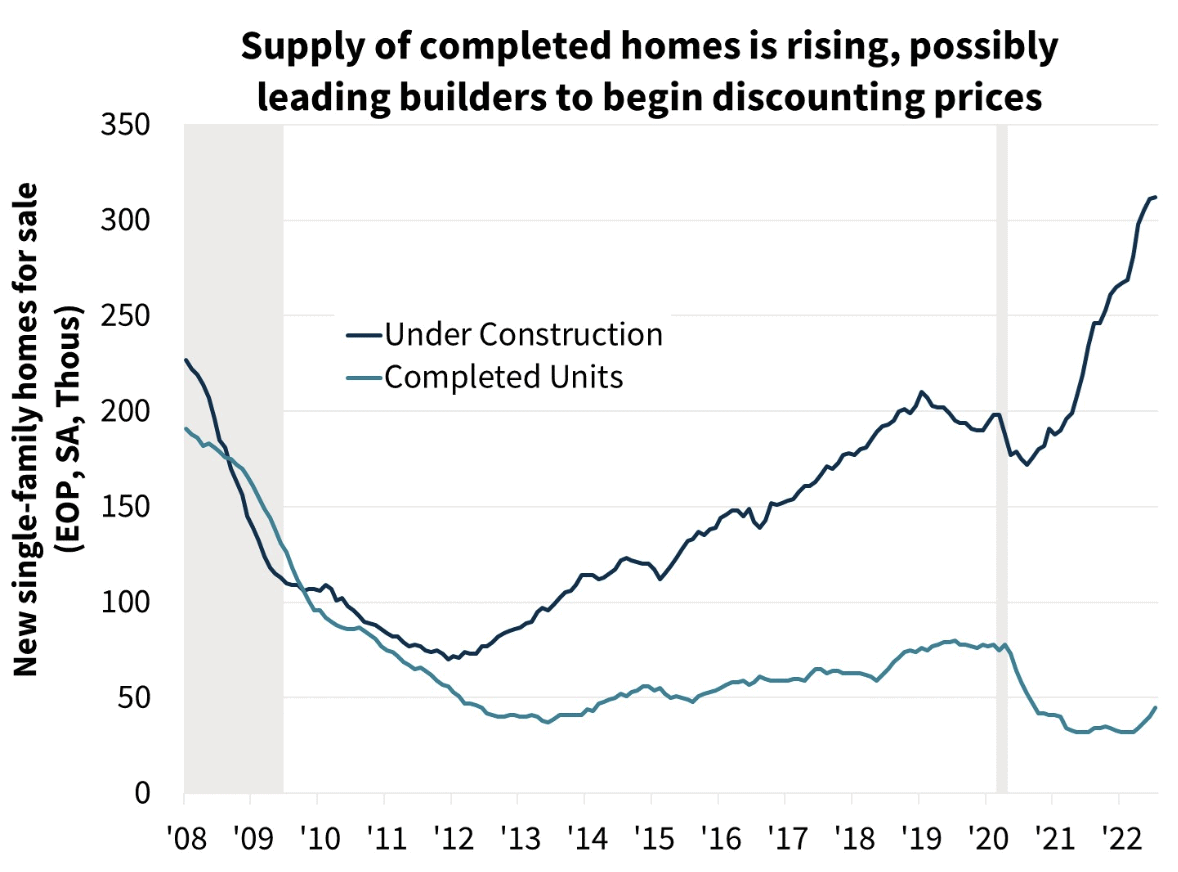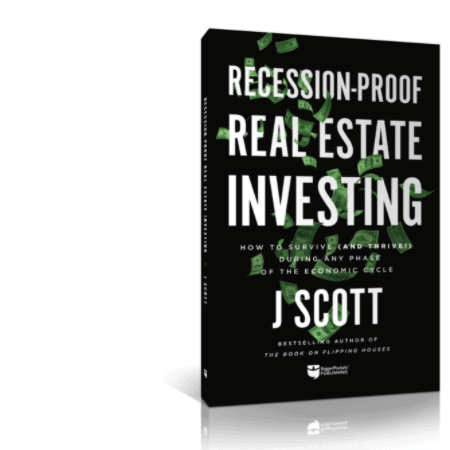A new report by Fannie Mae points to a strong possibility of a recession and a housing market downturn in 2023. With major economic factors continuing to point toward a recession in the near future, the U.S. housing market is likely to follow suit as prices begin to correct.
However, with all such predictions, there is the temptation to catastrophize. Many homeowners and investors will be anxiously monitoring the economic situation for signs of a full-scale housing market collapse. But is this what the data predicts? What should real estate investors really expect from the new year, and how should they adjust their expectations and investment strategies?
Homes Sales Are Slowing Down
The most striking piece of data from the Fannie Mae report is the substantial year-on-year decline in home sales as of July 2022. According to the researchers, sales fell 20.2% compared with 2021. If we disregard the atypical drops in home sales we saw during the Covid lockdowns, these are the lowest home sales levels since 2014.
Existing Home Sales – Fannie Mae
The biggest factor in the current downward trajectory in home sales is the steady rise in mortgage interest rates. As inflation continues to remain elevated, interest rates will continue to increase until inflation begins to fall. This, of course, will price out more and more prospective homeowners. Home sales will likely not improve in 2023, with a further annual fall of 13.3%.
Will this result in declining home values? Inevitably, yes. According to Redfin, as of September 2022, the average home is selling below asking price for the first time since March 2021.
If this sounds like worrying news, these figures ought to be put in perspective. As recently as May 2022, home prices were growing at all-time-high rates—we’re talking unprecedented home value growth. Asking prices at those levels could never be sustained for very long. Besides, the decline in selling prices is minuscule, with Redfin giving a figure of 99.8% of the asking price this September, compared with 101.4% the year before. The decline is noticeable but not dramatic.
New Construction Sales Are Declining, But Builders Aren’t Feeling The Pinch, Yet
There are signs of declining activity in new construction sales. Fannie Mae predicts that multifamily home construction will slow in 2023, even though homebuilders are not yet feeling the effects of a slowing market. The reason for this is the ongoing shortage of newly completed multifamily homes. With the demand for new homes continuing to outstrip supply, it is unlikely that the prices of newly constructed properties will decline just yet.
 New Single-Family Home For Sale – Fannie Mae
New Single-Family Home For Sale – Fannie Mae
The prognosis is less encouraging for single-family homes. As the situation stands, new single-family constructions are becoming more and more unaffordable, with unaffordability levels reaching pre-2008 thresholds. In practice, this means that more and more households will continue to rent for longer periods of time.
Having said that, Fannie Mae’s estimation of total mortgage purchase levels for 2023 is just 1.5% lower than 2022. Broadly, what this means is that people will continue to buy both newly built and existing homes. It’s just that there will be slightly fewer eligible buyers on the market.
Mortgage Rates Continue To Rise And Homeowners Are Staying Put
As mortgage interest rates continue climbing, fewer existing homeowners will be willing to refinance or sell, preferring to stay put and take advantage of the remainder of fixed-term mortgage rates that are lower than current rates. This points back to a supply-demand disparity that will keep home prices from plummeting enough to be considered a crash.
The Takeaway: The Housing Market Is Returning To Pre-Pandemic Levels
In summary, all that’s really happening is that the housing market is returning to pre-pandemic levels. In comparison with record-breaking rates of home value growth and historically low mortgage interest rates, it may look like a fully-blown downturn.
However, from a historical perspective, it is not that yet. Real estate investors may need to adjust their expectations in 2023, but they certainly need not panic. As an investor, you could see a marginal reduction in profits and may find that selling inventory could be slower as demand continues to fall.
But the suggestion that the housing market is on the brink of collapse is a bit far. However, other sectors, like commercial real estate, face a whole different set of challenges.

Prepare for a market shift
Modify your investing tactics—not only to survive an economic downturn, but to also thrive! Take any recession in stride and never be intimidated by a market shift again with Recession-Proof Real Estate Investing.
Note By BiggerPockets: These are opinions written by the author and do not necessarily represent the opinions of BiggerPockets.

